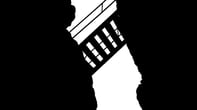The Potential for MOOCs

In our last week’s discussion, we left off talking about the potential Massive Open Online Courses (MOOCs) have for expanding the societal understanding of credentials as a way of displaying and conveying skills and knowledge. Jonas and Bishop-Root are back and joined by Professor Curtis Bonk to finish that conversation.
1. So, picking up from last time, do you think MOOCs will ever become required elements of degree programs?
JJ: Taking a look at how new the MOOCs are right now and some of the culture in higher education I would think that in the short term they probably would not become required elements. … If it comes from somewhere outside the institution I think there’s a lot of distrust and inability to codify that knowledge as the institution might as it currently stands. It will be interesting to see how MITx’s certificates play out in this regard, or even if the American Council of Education gets involved at all with these initiatives to help assign some credit equivalent as they have been doing for some other professional development types of programs. …
CB: I wrote a blog post on 20 different kinds of MOOCs and ours was what I’ll call a professional development MOOC; there are also theoretical MOOCs, other skill-based MOOCs where people are just going to get job skills when they need them and so forth and so on. Some are branding kinds of things, some are one-off loss-leaders where departments or programs might put up one course just to attract students to a program or department.
When you ask if they will be required—I think that … early introductory classes could be put up into some form of MOOC. Especially where there’s… skills that could be assessed by computer and eventually freeing up instructor time for more higher level kinds of courses with more depth and discussion. So when you say required, well required could be a low-level introductory kind of class.
In many programs today there are self-paced courses that are required that people take before showing up on campus. In some cases it’s just to get them familiar with the technologies they might need later on, such as the tech prep kind of course or a study skills kind of course. So I could see that bottleneck courses—like math, algebra, calculus—where students tend to drop out like flies, I could see them, maybe not being called required but being called some kind of a option for people who want to take it before showing up on campus or who did not succeed on campus. I think these will be available in different ways, shapes and forms, some of which may actually be required pieces of a program.
It also could be a capstone experience but I don’t think so, right away. I think it’s going to be more introductory… it could be an ending kind of community sharing event eventually, I could see that being required too. Where you might have a distributed program where students are located around the word and that final MOOC experience brings everyone back together to share what they’ve learned and put their galleries and profiles and portfolios up for others to take a look at and discuss and reflect…
It could be an early requirement, it could be a late requirement, but I don’t believe it will be something required in the middle of a program.
2. How are MOOCs changing the way we understand credits and credentials?
JJ: Looking back at how the different types of degrees have formed and how certificates have come to… be accepted either in the professional arena or in an institution—like a graduate certificate—or even schools of continuing education. It will be interesting to see how these experiences become more codified and how that affects how we think about credentials at the higher education level in particular.
I had an interesting conversation at OpenEd last year with a woman at an institution here in the US and they’re looking at developing… a self-paced associate’s degree combining both badges from a motivational standpoint along with that typical credential of the associate’s degree. I think we’re going to see more and more blends of these types of experiences and perhaps certificates along the way to help codify what we’ve been doing.
It will be interesting to see, though, from an employer’s perspective, if they’re going to look at an MITx certificate as something that’s demonstrable—because of the name MIT and the brand they usually bring—or will they understand the whole nature of what’s been understood or not from that experience.
In our course that we just provided, we provided a badge for two purposes, really. To help motivate students to participate more deeply in the course; and we were really pleased with that response and how it actually did help stimulate that deeper response within the community. And then, secondly, we just wanted to try out ourselves the connection with the Mozilla Open Badge Backpack feature which is still in a beta form but allows our participants to store their badge and a way for employers and others to see the badges they’ve gained. It will be interesting to see Mozilla’s development too, and how badges become a bit more standardized, how they become more transverbal, and even if they have expiration dates; do they need to be renewed like some other types of certifications and licensees that we see in other industries.
SBR: The feedback we’ve gotten from students in the open course is that their deans are accepting the badge as an indication of a professional development experience so that was very exciting for us to get that feedback because we know that institutions do see the value of the experiences as professional development.
CB: That’s an important point, Sarah, in that PD kinds of courses as a MOOC might be easier for people to swallow because a lot of professional development is in a giant stadium—I’ve seen them in football stadiums!—you bring in motivational speakers for a day… and people go back and they have that credential having gone through that PD so this is just a virtual one. And hopefully it’s much more powerful in terms of the learning outcomes because you have time to reflect, discuss, explore, as opposed to going to a football or basketball stadium for a day and calling that professional development. I think that, given the past history of professional development as opposed to traditional courses, I think this tends to be one of the easier ones for people to accept. …
In some ways, the MOOC is better than any kind of professional development anyone’s ever had an opportunity to experience in the past because you can share things beyond your neighborhood, or city, or country. And it’s quasi-permanent in that you can go back to it and revisit the ideas that are there unlike a traditional face-to-face professional development experience or a self-paced one… Something like this, the networks and connections and content and collaborations can extend well beyond it.
Going back to Jarl’s notion, what he’s saying I think is that we’re in an experimental phase and there’s some acceptance of this, and more acceptance than maybe there should be at this point, to be honest. I think the media’s hyping this up a little bit and getting people to either be attracted to it or be very against it instead of taking a more cautious middle-of the-road path I think. I do believe that these will find a way into pieces or aspects of a credential., including credit-bearing hours.
I also think Sarah’s notion of a two-year associates degree makes sense in that we want people to complete their high-schools, we want people to get a two-year associate’s degree according to Obama. And he wants to create the National Skills Library which would offer online courses. If he does that, in effect what he’s doing is endorsing MOOCs for associate’s degrees and MOOCs for high-school degrees. So if you think about the millions of dollars he’s planning to spend… to create this National Skills library Network for high school degrees and associate’s degrees, that in effect is endorsing some of these ideas about MOOCs in a different way.
4. Seeing as we’re entering an age where there’s such importance on the continuing education of employees, such that universities are opening up relations with employers to provide them this professional development and employers have even opened up their own universities. Do you think MOOCs would be intriguing for employers as a way to provide continuing education to large corporate families without the expense of going to individual universities or contractors?
JJ: I have two perspectives on that. When I was at NYU we had a corporate training entity and in that regard we had some universities approach us about creating particular types of targeted MBAs or targeted engineering types of experiences or real estate credentials. From that perspective there’s still going to be a lot of trust in an institution where a lot of subject matter expertise and research is held.
But from a corporate perspective, I can see a lot of companies breathing a bit of a sigh of relief where spending on professional development is quite high and typically not as much as it should be. I know that even as some of the courses that have come out recently, some of our developers have taken a look at some of the machine learning and human-computer interaction classes that have gone on. …
Also having been a part of some of those stadium-like experiences that Curt described; in many companies and many institutions they sometimes think, “Let’s have a web meeting of hundreds of people and that would qualify as professional development” without a follow-up or any real assessment of what’s been learned or any objectives that have been achieved.
All that said, I think it’s going to be some time until some things really formally develop. …
SBR: Whether it’s 10 people or whether it’s thousands, what it really comes down to is the quality of the experience. To me, when I compare even some of the courses I’ve taken versus the MOOC experience, the quality and the level of connection and the insight I had into this global community was so impactful to me that it brought a certain quality of learning that I hadn’t had in other types of situations.
I think there’s the notion of a MOOC versus an in-course type of experience through an institution or through a professional development program but really what it comes down to is the quality of the experience.
CB: You talk about corporations accepting this and a MOOC coming from a university. Keep in mind that many if not most corporations have their own universities. And so this idea about a MOOC is going to be that they’re going to wrestle with as well, if they haven’ already done so. You see in Chief Learning Officer magazine… there’s a heavy emphasis in the corporate world about video today. … Five years ago there was a big movement about podcasts, where IT trainers could download a podcast and listen to it when they needed it. So the corporate, as well as military, organizations are experimenting with many forms of delivery so I wouldn’t be too surprised that… international and global corporations would be trying to create MOOCs to get employees not only the skills they need when they need them but also the intellectual capital and connections across divisions and across cities. …
In many ways a MOOC makes sense to provide also a sense that the company exists beyond your location. When they say there are 20,000 people working here—truly there are 20,000 other people just like you that you can potentially connect to and that can help you out in some way. I think a MOOC on the corporate side will do two things; one it will distribute basic skills like what we see with Coursera and Udacity today. … And then we’ll have connection kinds of MOOCs I think in the corporate space. And there might also be product-based ones for consumers in the product space, to get products noted and the hype around it.
JJ: Curt just reminded me too when he talked about the use of video, I was involved… with developing the required ethical decision-making training for the worldwide employees for MCI when they went through their bankruptcy and court-required training. So that was an 80,000 employee company and we built a self-paced ethical decision-making model but we used a video host in that regard … it just reminded me that “Hey, that probably was a MOOC before it was known!” …
CB: I think the human in the loop will change and that’s why… being a good concierge as we can find ways to automatize certain low-level aspects—we already see that with Wikipedia and we see that with now video-on-demand—…as we take care of some of those needs and we can speak to computers and… the information asset side of teaching and learning lowers in importance and the higher-level things become helping one-on-one. …
3. Getting back to the idea of degrees and traditional credentials, especially with the role of the instructor changing, do you think degrees and traditional credentials will be as important in the future as they are now, or will badges and specific competencies overtake our desire for certificates and the like?
CB: We’re right now hung up on badges. It’s nice to have in this particular course, but there will be other ways of potentially assessing human growth and development beyond the notion of a badge. A badge is a wonderful way to go for now to start a movement or a trend but I think something will take its place. … I double-majored in human learning and human development and I really think it’s the human development side that’s been short-played throughout much of education. We tend to focus on discrete learning skills and not humans developing over time or lifelong learning. These badges are really about skills; these are about little things. And I think at some point we’re going to have to go up to the macro level and we’re going to have to start understanding adult development better… If we’re really going to shake things up and if we’re really serious about lifelong learning and continual growth we’ll to have to start understanding things at a macro or more meta level beyond badges, that’s my take on things.
Will we move away from degrees? Will we still have credentials like that? I think for the next 20-30 years I would envision that we’re going to continue to have PhDs and BAs, we’ll just have more types of things for now. … Will they be more prestigious than a badge? Yes. I think degrees will be more prestigious than a badge. But will time allow everyone to have a degree? No. So I think we’re going to have a mixed bag of both for quite a long time and eventually we’re going to be looking at like skills, maybe multiple badges come together into something over time.
JJ: I was thinking more logistically about how change seems to be a bit slow in the higher education realm and it’s not necessarily because of the institutions themselves but you’ve got governing bodies… you’ve got accrediting bodies in regions so the wheels of change tend to go a bit slower than we might hope.
But back to Curt’s point we’re in the experimental phase so let’s let this get played out perhaps in the professional realm where we can get the skills level worked out. I would like to see as well how the human development aspect does work out. And that’s not to say you can’t create soft skills badges or things like that but I think it’s going to stick in the professional realm for a while longer before it starts to hit… the higher education or even the K-12 space.
SBR: I think whether it’s a badge or something else—whatever it is—I think what’s really important is that it’s a part of the conversation that our experience are beyond just the classroom. …We’re so much more complex than just the courses we attend. I may have an experience outside of the classroom that I would like to reflect as I describe what I’m able to do. I think it’s about somehow developing a language to articulate that, whether it’s through a badge or something else because we’re realizing an area that’s very important.
CB: We all like some pats on the back and a badge becomes some of that recognition for your accomplishments. A lot of times in the past, informal learning we do on our own—there’s also a question of whether we’re de-motivating people by providing a badge where in the past we would just seek knowledge out when we needed it. … There’s a whole new field for the next few decades there will be people exploring not just MOOCs, but derivatives of MOOCs. Open education in general is a field that is just now starting to fly away and the ideas around it are germinating and finding new formats in higher education, corporate and K-12 spaces. …
If MOOCs are really unique and innovative they won’t just be replacing degrees or substituting for courses, they’ll be an entity in and of themselves. They’ll offer an experience that is really unique and might be treated differently or as a parallel, in some ways, to higher education degrees. … It might be something we’re not even thinking about.
Author Perspective: Business



